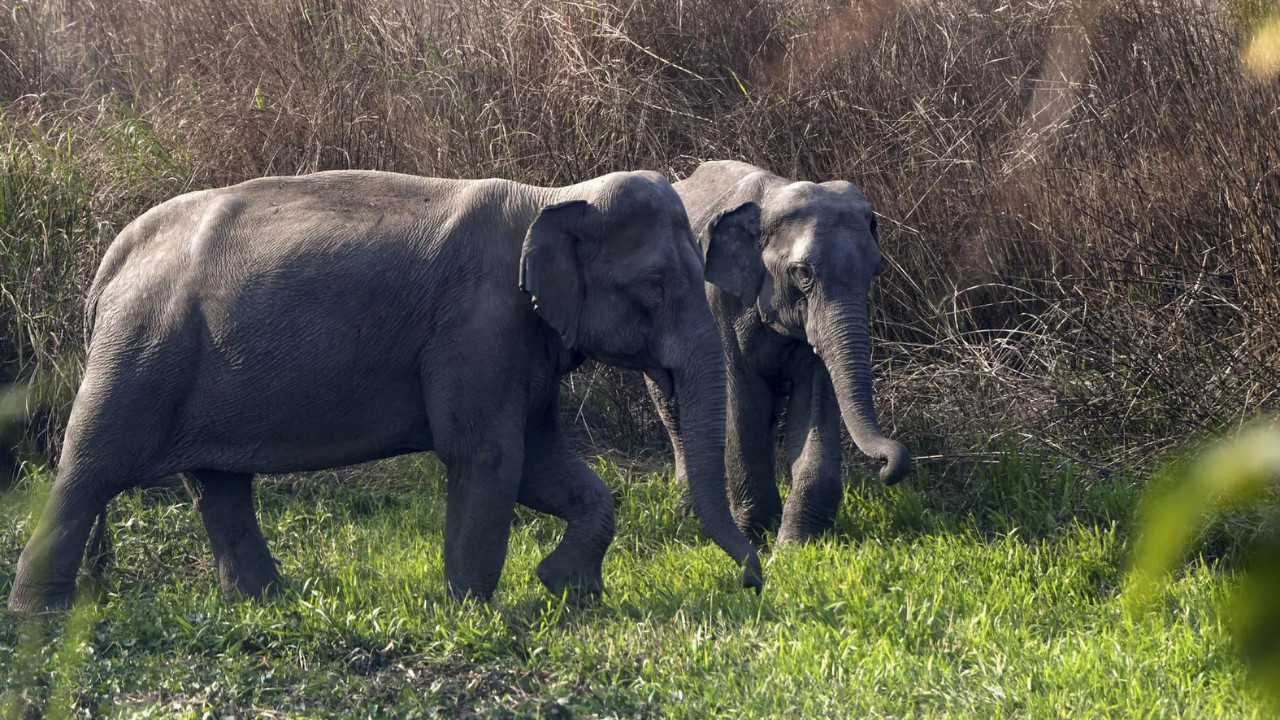In a remarkable blend of technology and nature, Tata Electronics’ ambitious semiconductor plant in Assam encounters an unexpected challenge: local elephants. These majestic creatures pose a risk to the precision manufacturing of chips. To address this, authorities are constructing a sturdy ‘elephant-proof’ barrier, with the support of the state. Furthermore, wildlife experts are safely relocating snakes discovered in the area.
Tata Electronics: Building a Chip Factory, Literally Fortified Against Nature
Building a semiconductor fabrication unit, a “fab,” is already a Herculean task. Now imagine doing it in the heart of Assam, India, where the local wildlife considers your construction site their personal playground. That’s the challenge Tata Electronics is facing head-on, and their solution is anything but ordinary. They’re not just building a factory; they’re constructing a fortress against elephants, snakes, and the unpredictable forces of nature.
The upcoming chip manufacturing plant in Assam represents a significant step for India’s burgeoning semiconductor industry. It’s a bold move to establish a high-tech facility in a region better known for its tea plantations and rich biodiversity. But this ambitious project comes with unique hurdles.
An Elephant-Sized Problem: Protecting the Fab
Elephants are magnificent creatures, but they are also incredibly strong and, well, a little clumsy. An elephant casually leaning against a crucial piece of equipment could spell disaster for the delicate machinery needed to produce semiconductors. That’s why Tata Electronics is investing in an “elephant-proof” barrier.
This isn’t just a regular fence. Reports suggest it’s a robust structure designed to withstand the immense weight and curiosity of these gentle giants. Think reinforced concrete, strategically placed obstacles, and maybe even some elephant-deterrent landscaping. The goal isn’t to harm the elephants, but to redirect them safely away from the vulnerable areas of the fab.

Snakes Alive! Safeguarding Against Smaller Intruders
While elephants present a large-scale challenge, smaller creatures can also pose a threat. Snakes, common in Assam, can slither into sensitive areas of the fab, potentially damaging equipment or endangering personnel. Addressing this concern requires a different approach.
Instead of a physical barrier, Tata Electronics is implementing safeguards to make the facility less appealing to snakes. This could involve maintaining a clean environment, controlling vegetation growth around the perimeter, and using snake-repellent technology. Regular inspections and employee training are also essential to ensure a safe working environment. The measures taken to prevent snakes from entering the chip manufacturing facility will protect the expensive equipment required for the process.
More Than Just Animals: Weathering the Storm
Assam’s climate is known for its heavy rainfall and occasional flooding. Protecting the fab from these weather-related risks is another critical aspect of Tata Electronics’ construction strategy. This might involve elevating the facility, implementing robust drainage systems, and using weather-resistant materials.
The company is also likely considering the potential impact of earthquakes, which are relatively common in the region. Building a structurally sound facility that can withstand seismic activity is crucial for ensuring the long-term viability of the project.
India’s Semiconductor Dream: A Boost to Local Economy
The Tata Electronics project is more than just a factory; it’s a symbol of India’s ambition to become a major player in the global semiconductor market. The fab is expected to create thousands of jobs in Assam, boosting the local economy and providing opportunities for skilled workers.
This initiative aligns perfectly with the Indian government’s “Make in India” campaign, which aims to promote domestic manufacturing and reduce reliance on imports. A successful semiconductor fab in Assam would not only contribute to India’s economic growth but also enhance its technological capabilities and strategic independence. You might also find interesting our recent coverage of [India’s tech manufacturing initiatives](internal-link).
A Complex Undertaking with a Bright Future
Building a chip manufacturing plant is a complex undertaking, even under the most ideal circumstances. But Tata Electronics’ commitment to addressing the unique challenges posed by Assam’s environment demonstrates their determination to succeed. Their innovative solutions to safeguard against wildlife and weather-related risks showcase their resourcefulness and attention to detail.
As the project progresses, it will be interesting to see how Tata Electronics continues to adapt to the local environment. Their success in Assam could serve as a model for other companies looking to establish high-tech facilities in challenging locations. Ultimately, this project represents a significant step forward for India’s semiconductor industry and a testament to the power of human ingenuity in the face of adversity. Securing the site from natural interference is a vital part of the overall mission of chip manufacturing.







